#Game Master tips
Text
Like a lot of people, I’ve spent the last several months playing the absolute masterpiece that is Larian Studios’ Baldur’s Gate 3 (BG3). It’s an amazing game, so it’s no surprise that we’ve had a long list of think pieces about the lessons it can teach us. What is a bit surprising is how many of those think pieces directly compare BG3 to 5th Edition Dungeons and Dragons (5E), along with other tabletop roleplaying games.*
At first, I didn’t think such comparisons made sense. It’s true that BG3’s mathematical values come from a significantly modified version of 5E’s rules, but they’re two completely different forms of media. One is a video game, while the other is a game played on a tabletop with real people. There are so many differences between the two experiences that I don’t even know where to start.
8 notes
·
View notes
Text
SOMEONE CALL THE UNIVERSITY STUDENTS!
Are you tired of your players always taking too long to solve a mystery? Or have they never touched a book and don't even know how to do it in a fantasy setting?
Well, your problems are over! I present to you the DMing asset that I like to call "Someone call the university students!"
Based off a popular idiom in my country, all you need for this asset is to introduce an experienced NPC before your playes go on a little treasure hunt. Ranging from a detective to an archmage, they can be anyone!
Mainly they are just there so your players don't get extremely stuck and eventually get bored! So, put that quirky librarian that just knows a little too much about dragons because they decided to major in Draconic Ages in University and just so happens to be nice enough to help the party!
And you wanna know the best part?
They don't need to tell them everything or be entirely correct (C'mon, they are undergraduates, they don't know their own class schedule). So, use it as your heart desires!
As a bonus I will present to you my top 3:
Wizard student that is paid minimun wage at the local library and absolutely loves to read the monster section, fictional and factual, and occasionally mixes up the two (Use it when you are mad at your players)
Old fella that lives close to the crime scene, and has seen some shit, but doesn't like cops so they only talk to the party about it (Use it when they are about to incriminate the wrong person and you don't want them to wreck the game by accidently sending the Grand Minister to prison)
Shop worker that has literally nothing else to do other than listen to tales from travelers, as a hobby she keeps tabs of all the ruins on the area and, for the right price, might help the party (Use it in any circumstance).
#dnd#ttrpg#dungeon master#dming tips#dungeon master guide#dungeons and dragons#roleplaying game#game master tips#game master assets#gming#npc ideas#by me#npc tips#player tips#writing#fantasy writing
38 notes
·
View notes
Text
Masterlist
Here you can find my Masterlist of all important collections, posts and lists! This will be constantly updated, so keep an eye out for new content!
✧ ˚ · .
Character Creation
✧. ┊ NPC Collection
World Building
✧. ┊ Thalôr World Building Question of the Day Masterlist
Hastags
✧. ┊ Important Hashtags
✧ ˚ · .
NOTE: This is under construction from Jan 28th until an unknown time. This post isn't finished, but needed to be posted for other reasons.
#masterlist#ttrpg#dnd#npcs#character idea#character concept#homebrew#dnd5e#art#player tips#game master tips#battlemaps#calsdice
3 notes
·
View notes
Text

You know what they say.
Hit hard, and hit often.
#dnd#d&d#dnd creature#d&d monster#dnd homebrew#homebrew#fantasy rpg#rpg#fantasy#new dungeon master#dungeon master#dungeon master tips#dungeon master inspiration#points of inspiration#sly flourish#dm tips#dm advice#gm advice#game master tips#game master
18 notes
·
View notes
Text
How to run a haunted adventure
Opinions and Commentary:
🎲 In this video we react to an article titled that discusses how to run a haunted adventure in #DnD or any #TTRPG.
#DnD5e #DungeonMaster #GameMaster #TTRPGFamily
In this video we react to an article titled that attempts to teach Dungeon Masters and Game Masters how to run a haunted adventure.
📢 Let us know what you think about the video below, or if you believe we made any mistakes, in the comments.
👍 Please take a moment to like, subscribe & share, it really helps us out. Thank you.
SUPPORT LEGION OF MYTH
• PayPal: https://paypal.me/legionofmyth
•…
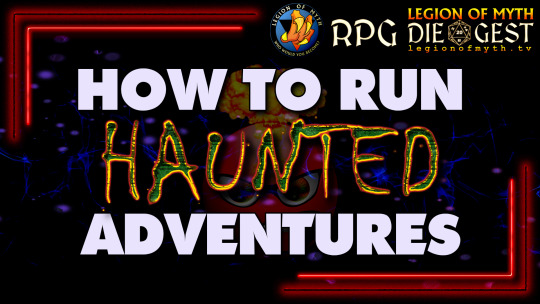
View On WordPress
#computer game#d&d 5th edition#d&d advice#d&d tips#dm advice#dm mistakes#dm tips#dm tips and tricks 5e#dm tips dnd#dnd dm tips#dnd stories#dungeon master#dungeon master advice#dungeon master tips#dungeons & dragons#Dungeons and Dragons#game master#game master tips#gm tips#how to play d&d#role playing games 2022#role playing games pc#role-playing game#tabletop role-playing game#tabletop RPG#tabletop rpg games#tabletop rpg music
8 notes
·
View notes
Text
Experience Based Bounties
Over on My Discord Server people were talking about potential alternative uses for experience in campaigns that use milestone based levelling, which gave me an idea.
Why not use experience as general guidelines for bounties.
Take the humble goblin for example, at CR 1/4, it would provide 50xp, maybe instead of that, you put bounties out, players that kill goblins get money for doing it.
Perhaps you want the players to get paid to wipe out a cave filled with 10 goblins, 10 times 50 is 500, and then to bring that to a reasonable level, lets divide it by 100. A 5gp bounty (per person) to kill all those goblins and clear out the cave.
Lets apply the same to an adult red dragon: 18000 / 100 = a 180gp bounty (per person) just for killing the dragon (before you even get to the hoard).
These numbers can obviously be adjusted dependant on a lot of factors, but it seems a nice quick and easy way of figuring out bounties' worth, and a fun alternative use for experience points.
#dnd#d&d#dnd homebrew#dnd 5e#dungeons and dragons#dnd5e#5e homebrew#fantasy#ttrpg#homebrew#jay's rambles#dungeon master#dm times#dungeon master tips#game master#gm advice#dm advice#game master tips
1 note
·
View note
Text
youtube
My second Youtube video is now public.
I was told that the previous video was to quiet. This one has had the volume boosted by 50% and seems on my end to be better. Please let me know of any audio issues.
In this video I look at the combat systems for FATE and Savage Worlds.
#english vtuber#vtuber#ttrpg#dnd5e#youtube#dungeons and dragons#FATE#Fate core#Savage Worlds#SW#fantasy#goblin#angel#angelic encounters#Game Master#dm tips#startplaying#dungeon master tips#dungeon master#Game Master tips#Youtube
0 notes
Text
Deck of Many Things - Adventure Builder - Free Version
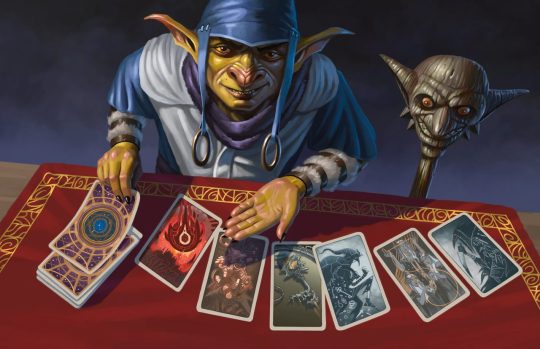
Based on D&D's official video explaining their new adventure builder in the upcoming Book of Many Things.
You preferably do need to have some cards on hand. Although, they are not necessary, and I will give some examples of d100 tables from dndspeak.com you can use instead of cards. But if you already have a Tarot deck or one of the many versions of Dixit, you can use those cards to spark your inspiration as well.
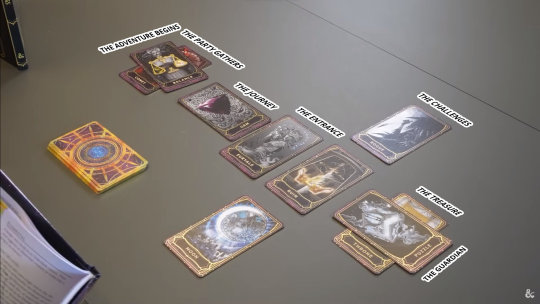
If you have a real deck of cards (Tarot or Dixit or whatever has some fancy images) lay them out like in the image above, and read the explanation below on how to interpret them for your adventure.
"The Party Gathers" Card
This card represents the situation the characters are in before the adventure starts, it might be a place that they meet, a person they’re visiting, a treasure they are drawn to for different reasons, or a dangerous creature unrelated to the adventure to follow.
Link to 100 interesting taverns and their tavernkeepers
“The Adventure Begins” Card
Place this card across the first card to represent how the adventure starts, it might be a situation that starts the action, an individual who gives the adventurers a quest, or an attack by a creature that prompts the party to follow it to its lair.
Link to 100 campaign start scenarios
“The Journey” Card
The transition from the introduction to the adventure location, probably a person, a creature, or a location the characters encounter along the way.
Link to 100 interesting forest locations
“The Entrance” Card
This card describes the entrance to the main dungeon or adventure location, it might represent a creature that guards the entrance or the physical details of the entrance itself.
Link to 100 interesting dungeon doors
“The Challenge” Cards
These cards (often 3, but can be any number of cards depending on how long you want this adventure to take) represent the various encounters the party will discover. They can take the form of a fight that breaks out, a puzzle that needs to be solved, or a situation that requires a social solution.
Link to 100 swamp encounters
“The Treasure” Card
Maybe the most important card of them all, the treasure card represents the item, boon, or creature the party finds at the end of the adventure. It is, however, guarded by what is found on the guardian card.
Link to 100 artifacts of great power
“The Guardian” Card
Also known as the “The Big Boss” card, this card represents the final threat that has to be overcome by the party. Although often a physical threat that has to be fought, the guardian can also take the form of a puzzle that is on a nerve-racking timer or someone that has to be convinced of something that goes completely against their nature.
Link to 100 eldritch horrors
I hope this helps you crafting amazing adventures for your players, even if you do not have $100,- to spend on this new product from Wizards of the Coast.
#deck of many things#dungeons & dragons#dungeons and dragons#dnd#ttrpg#dnd adventures#dungeon master tips#game master tips#ttrpg community#tabletop rpg#tabletop roleplaying#tabletop games#roleplaying games#tabletop gaming
0 notes
Text
Top 10 Medieval Fantasy DND Campaign Themes
Adventurers and storytellers! 🎲✨ Discover the secrets to a truly captivating #DnD campaign. From the eerie whispers of brooding forests to the power struggles of royal courts, our latest article has it all. #dungeonsanddragons
Many Dungeon Masters know the thrill of crafting a captivating scene that leaves their players mesmerized. Delving into Medieval Fantasy DND Campaign Themes presents a world rich with endless opportunities for epic tales. Picture this: adventurers weaving through a bustling market, not for trade, but to unmask a secret spy for a local baron, a move that could reshape the kingdom’s balance of…
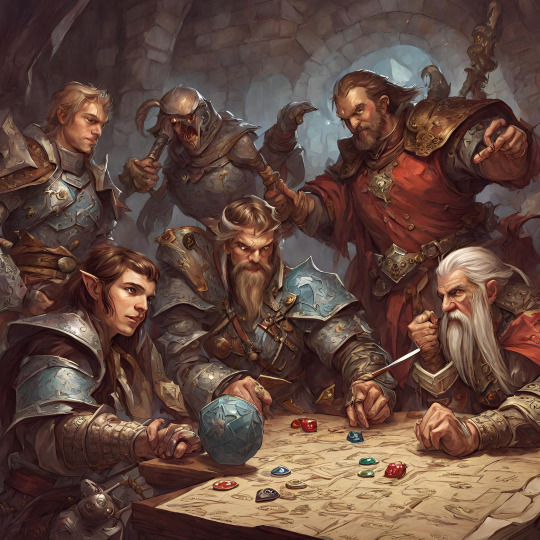
View On WordPress
#Campaign Themes#Court Intrigue#D&D#Dark Forests#dnd#dungeon master#fantasy#Game master tips#Great Wars#Holy Relics#Knights#Lost Civilizations#Mythical Beasts#Storytelling#Underworld
0 notes
Text
Google the names of your person, places and things when you are world building. Even if you made the name up. See what’s connected to that combination of letters you’ve made.
0 notes
Text
Just a friendly reminder for DMs: Many brands of wrapping paper has a 1x1in grid on the back, the perfect size for d&d maps, and all the holiday paper is currently on sale
958 notes
·
View notes
Text
if you are a dungeon master (or even a fantasy author/worldbuilder of any kind) and you don’t know about donjon let me make your life a million times easier
want to make a fantasy calendar with your own year-lengths, weeks, months, and lunar cycles? https://donjon.bin.sh/fantasy/calendar/
need to come up with some medieval town demographics? https://donjon.bin.sh/fantasy/demographics/
want to make a map and layout of a city/town? https://donjon.bin.sh/fantasy/town/
want a fleshed-out tavern complete with menu, innkeeper, patrons, rumors, and secrets? https://donjon.bin.sh/fantasy/inn/
leading your players through a dungeon and want to customize the size, treasure, layout, theme, etc? https://donjon.bin.sh/5e/dungeon/
tired of creating lists of magic items for different shops to sell, or hoards to be looted? https://donjon.bin.sh/5e/magic/shop.html and https://donjon.bin.sh/d20/treasure/
even a customizable initiative tracker! https://donjon.bin.sh/d20/initiative/
and that’s only scratching the surface! I really recommend all dms check this out. oh, and it’s completely free!
#donjon#dm#dungeons and dragons#d&d#gm#worldbuilding#cr#dm tips#dm advice#ttrpg#game master#dungeon master
478 notes
·
View notes
Text
The Dungeon Master's Handbook: Tips from August 2023
Here are the top ten Dungeon/Game Master tips that I posted to various social media channels in July 2023. These tips are great for almost any TTRPG like Dungeons & Dragons or Pathfinder.
Have your players summarize the last session so you know what they remembered and what is important to them.
Be careful giving monsters too many surprise rounds. Ensure the PCs get the drop on the monsters…
View On WordPress
#5e#campaign#d&d#dm tips#dnd#dnd 5e#dnd5e#dungeon master#dungeon master tips#dungeon masters handbook#dungeons & dragons#dungeons and dragons#dungeons and dragons online#game master#game master tips#pathfinder#ttrpg
5 notes
·
View notes
Text
Computer game influence on tabletop RPGs
Computer game influence on tabletop RPGs
In this video we react to an article titled that discusses computer RPGs vs tabletop RPGs and TTRPG players.
📢 Let us know what you think about the video below, or if you believe we made any mistakes, in the comments.
👍 Please take a moment to like, subscribe & share, it really helps us out. Thank you.
SUPPORT LEGION OF MYTH
• PayPal: https://paypal.me/legionofmyth
• StreamLabs:…
youtube
View On WordPress
#computer game#d&d 5th edition#d&d advice#d&d tips#dm advice#dm mistakes#dm tips#dm tips and tricks 5e#dm tips dnd#dnd dm tips#dnd stories#dungeon master#dungeon master advice#dungeon master tips#dungeons & dragons#Dungeons and Dragons#game master#game master tips#gm tips#how to play d&d#role playing games 2022#role playing games pc#role-playing game#tabletop role-playing game#tabletop RPG#tabletop rpg games#tabletop rpg music#Youtube
3 notes
·
View notes
Text
DM\GM Tip on Roleplaying Stuff
🎲 GMs, there’s always a way to say yes to what the player wants to do.
🎭 Roleplay isn’t always about getting what you want but being given the chance to try and it doesn’t mean success is always possible.
💪 I once had a Barbarian whose whole purpose was to fight the biggest things he could find.
🌋 The first time he saw a Volcano, he wanted to fight it. Both me and the player knew that wasn't possible. But I gave him the chance to play this out.
He attempted to scale the side while his party looked on, dumbfounded. He eventually fell...multiple times. Until he swore, he would return when he was stronger to exact revenge.
Sometimes players will want to do things and not understand that it's not possible yet -- could be due to power levels, influence, ect.
🧙♀️ Don't just deny them the opportunity. Talk, communicate expectations and give them chances to work towards those goals.
#Dungeon Master#Game Master#DnD#D&D#Dunngeons & Dragons#Dungeons and Dragons#TTRPG#DM Tips#GM Tips#DM Advice
114 notes
·
View notes
Text
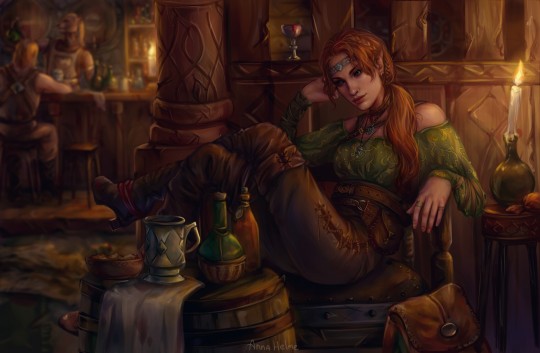
Bringing Your NPCs to Life: Tips for Creating A Believable Character Backstory in D&D
As a dungeon master, one of the most important parts of your job is creating believable and interesting NPCs (non-player characters) for your players to interact with. These NPCs can range from shopkeepers and guards to quest givers and powerful villains, and they play a crucial role in bringing your campaign world to life.
However, creating NPCs that feel real and relatable can be a challenging task. In this blog post, we'll be discussing some tips and tricks for creating believable NPCs in D&D. From giving NPCs a backstory to making them react realistically to the players, we'll show you how to make your NPCs feel like real, living people. So whether you're a seasoned dungeon master or just starting out, read on to learn how to create NPCs that will keep your players engaged and invested in your game.
Family and Relationships
Family and relationships are an essential element of an NPCs backstory and can give insight into their personality and motivations. For example, an NPC who has lost a loved one might be more likely to be driven by grief and a desire for revenge.
Family and relationships can also provide hooks for the players to interact with the NPCs, creating interesting and dynamic interactions. It can also create conflicts for the NPCs and the players, and the NPCs can have different types of relationship with the player characters like friends, enemies, mentors, allies, and more.
Additionally, NPCs can have complex relationships, for example, an NPC who has a love-hate relationship with one of the player characters. Knowing the NPCs family and relationships can also help the DM to create a believable dialogue, as NPCs can have different roles in the family or society and it can affect their actions and motivations.
Childhood Experiences
Another crucial component of an NPCs biography is their early life, which has the power to influence their personality, worldview, and moral principles. An NPC who was raised in poverty, for instance, might be more motivated by a desire for money and status. Childhood memories can also serve as springboards for the players to engage with the non-player characters (NPCs), resulting in engaging and dynamic interactions. The early experiences of the NPCs might influence their beliefs, values, and worldview, and it can also lead to disputes between them and the players.
In addition, NPCs early life experiences can affect their talents and aptitudes; for instance, an NPC who grew up in a conflict zone may be better at surviving and engaging in warfare. Additionally, it can affect how they feel and think. For instance, an NPC who experienced abuse as a youngster may struggle with trust or develop PTSD. As NPCs can have diverse perspectives on life and the world based on their experiences, knowing the NPCs early experiences can also aid the DM in crafting believable dialogue.
Education or Training
An NPCs education and training can give meaning to their talents and abilities and are a significant part of their narrative. Knowing what an NPC has studied or received training in might help determine their level of skill and knowledge. A skilled wizard NPC, for instance, may be more motivated by a quest for power and knowledge.
The players' interactions with the NPCs may be made more fascinating and dynamic by means of education and training. As the education and training of the NPCs may impact their views, values, and worldview, it can also lead to disputes between the NPCs and the players.
Additionally, NPCs education and training can shape their career and occupation, for example, an NPC who is a trained engineer might be more likely to be a successful inventor or architect. It can also shape their social status, for example, an NPC who has received a noble education might be more likely to be a member of the upper class. Knowing the NPCs education and training can also help the DM to create a believable dialogue, as NPCs can have different perspectives on life and the world based on their education and training.
Career or Occupation
An NPCs career or occupation can also play a role in shaping their backstory and provide context for their skills and abilities. Knowing what an NPC does for a living can give insight into their skills, abilities, and motivations. For example, an NPC who is a shopkeeper might be more likely to be driven by a desire for wealth and success. A career or occupation can also provide hooks for the players to interact with the NPCs, creating interesting and dynamic interactions. It can also create conflicts for the NPCs and the players, as the NPCs career or occupation can shape their beliefs, values, and how they perceive the world.
The NPCs career or occupation can shape their social status, for example, an NPC who is a noble might be more likely to be a member of the upper class. It can also shape their reputation, for example, an NPC who is a notorious thief might be feared or respected by other NPCs. Knowing the NPCs career or occupation can also help the DM to create a believable dialogue, as NPCs can have different perspectives on life and the world based on their career or occupation.
Life Events
Life events that shape an NPCs personality are also an important element of an NPCs backstory and can give insight into their personality, beliefs, and values. For example, an NPC who has experienced a traumatic event, like a war, might be more likely to be driven by a desire for peace and safety. Life events can also provide hooks for the players to interact with the NPCs, creating interesting and dynamic interactions. It can also create conflicts for the NPCs and the players, as the NPCs life events can shape their beliefs, values and how they perceive the world.
Additionally, NPCs life events can shape their skills and abilities, for example, an NPC who has been through a shipwreck might be more skilled in survival and navigation. It can also shape their emotional and mental state, for example, an NPC who has suffered a great loss might have trust issues or PTSD. Knowing the NPCs life events can also help the DM to create a believable dialogue, as NPCs can have different perspectives on life and the world based on their experiences.
In Summary
Giving your NPCs a backstory is an essential step in making them feel like real and relatable characters
A backstory provides context for an NPC's actions and motivations, making them more believable and interesting to the players
Family and relationships are an essential element of an NPC's backstory and can give insight into their personality and motivations
Childhood experiences are another important element of an NPC's backstory and can shape their personality, beliefs, and values
Education and training are an important element of an NPC's backstory and can provide context for their skills and abilities
An NPC's career or occupation can also play a role in shaping their backstory and provide context for their skills and abilities
Life events that shape an NPC's personality are also an important element of an NPC's backstory and can give insight into their personality, beliefs, and values
By including these elements in an NPC's backstory, you can create characters that feel real and relatable to your players
Additionally, it will help you to understand the motivations and actions of NPCs, making the game more interesting and dynamic
#geeklife#geeky stuff#geek culture#rpg ressources#rpg character#roleplaying ideas#dnd guide#dnd tips#dnd memes#dnd character#dungeons and dragons#dungeoncore#dungeon and dragons guide#dungeons and dragons tips and tricks#help guide#geek games#tabletop#dnd community#dungeon master#roleplaying games
106 notes
·
View notes